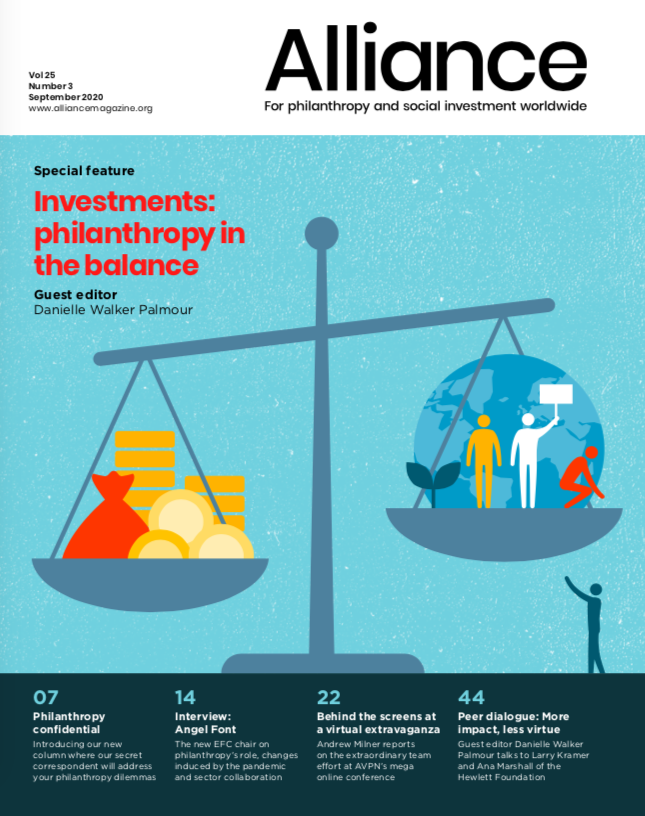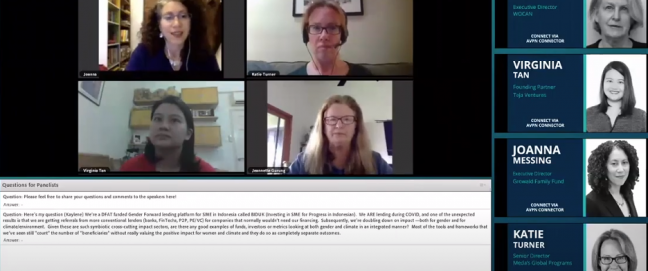Civitates has set up a €3 million fund to support public-interest journalism in Europe.
Collaborative fund Civitates is to make multi-year commitments for core support to organisations producing independent public-interest journalism. The grants will provide general operating support and institutional strengthening and also encourage grantees to work together and learn from each other through network building.
 As a pooled fund founded in 2017 to promote democracy and solidarity in Europe, Civitates is already supporting initiatives that strengthen the space for civil society and that push for a healthy digital public sphere in which public and democratic values are safeguarded. At the start of this year, the 18 participating foundations agreed that the Civitates consortium would be an apt vehicle to support the struggling journalism sector in Europe[1].
As a pooled fund founded in 2017 to promote democracy and solidarity in Europe, Civitates is already supporting initiatives that strengthen the space for civil society and that push for a healthy digital public sphere in which public and democratic values are safeguarded. At the start of this year, the 18 participating foundations agreed that the Civitates consortium would be an apt vehicle to support the struggling journalism sector in Europe[1].
The last few years have seen the rise of many non-profit, public-interest journalism outlets. Think, for instance, of centres like The Bureau of Investigative Journalism in the UK, Correct!v in Germany, Direkt36 in Hungary and the Investigative Reporting Project Italy. Organisations like these have proven to be invaluable for researching important societal issues, exposing abuses of power and defending a space in which all voices are heard. However, they are generally in a vulnerable position, particularly when operating in politically hostile environments. What is more, as not-for-profit outlets, they fall outside the scope of the funding mechanisms that cover for-profit journalism organisations. So philanthropy has a valuable contribution to make here and it is encouraging to see more foundations supporting the vital role that independent and reliable journalism plays in democracies, serving as a platform for debate, and reporting on governmental and corporate (in)actions.
In recent years, it has become clear that independent journalism, in Europe too, is in a vulnerable position and in need of support… media freedom and independence are increasingly under pressure.
However, despite this burgeoning interest, donors still commit a tiny fraction to the European journalism sector. While the total amount of philanthropic funding available for media worldwide has been estimated at $1.3 billion only 6 per cent of that amount goes to Europe. Moreover, the field is siloed: there are few funders that take an ecosystem view, focusing instead on specific elements, countries or challenges.
For a long time, the European journalism sector was not considered philanthropy’s natural habitat. Journalism was a function of the commercial market and, in several European countries, it was well-funded by the state. What is more, Europe remained the continent that guaranteed media freedom best. However, in recent years, it has become clear that independent journalism, in Europe too, is in a vulnerable position and in need of support. Declining trust in media, reinforced by widespread disinformation, is paving the way for anti-press sentiment, media freedom and independence are increasingly under pressure, and the need for an improved business model, only exacerbated by the coronavirus, is felt across the continent.
Increasing the amount of funding available for the European journalism sector and fostering coordination and collaboration among donors is at the heart of Civitates’ new fund. The foundations involved see four main reasons for pooling journalism resources under the Civitates umbrella. First, by joining forces, the fund can bring home the message that independent, public interest journalism is essential to democracy. Second, the fund can serve as an efficient entry point into the journalism funding space. Next, by acting collaboratively, the fund can mitigate potential reputational risks involved with journalism funding, for both funders and grantees. Finally, pooling resources can maximise the limited funding available in this area, producing a stronger, healthier, and more sustainable field.
…it is encouraging to see more foundations supporting the vital role that independent and reliable journalism plays in democracies…
By the end of June, Civitates had received 312 applications. We have particularly welcomed applications from organisations operating in situations where the market has failed to support independent journalism, media have been captured by state or non-state actors, or where there is a hostile legal environment for public-interest journalism. What is more, applicants have been encouraged to demonstrate clearly how they relate to the communities they serve for example, by striving for greater audience engagement to bridge divides in society, and by focusing on audiences that are traditionally underrepresented in the media.
In the coming months, and with the help of an independent and diverse committee of experts, the donors aim to establish a strong cohort of journalism organisations that want to learn from each other. At three million euros, the fund will start relatively small, but with great potential to grow in the years to come. Civitates is committed to make this new model of collaborative journalism grantmaking, tailored to the needs of the field, a success, to ensure not just the survival but the growth of independent, public interest journalism in Europe.
Merel Borger is programme manager at Adessium Foundation.
Email: mb@adessium.org
Ekaterina Mandova is a programme officer at Civitates.
Email: ekaterina.mandova@nef-europe.org
Footnotes
- ^ Adessium Foundation is one of the founding funders of Civitates and initiator of the new sub fund for independent public interest journalism in Europe.




Comments (0)